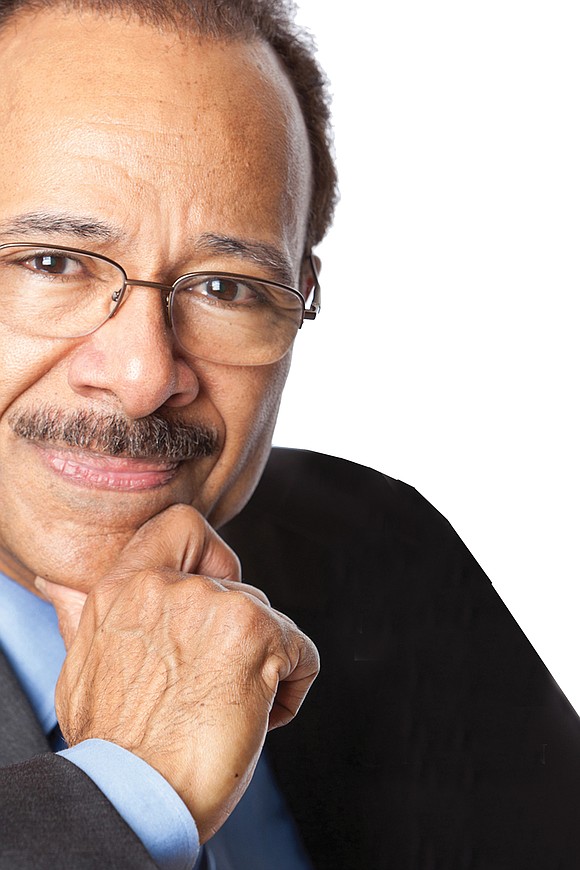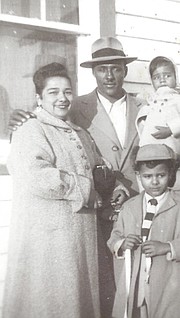Weathering addiction
Spencer Christian, Va. native and former national television weatherman, has been haunted by a gambling addiction for decades
By Reginald Stuart | 2/1/2019, 6 a.m.
Growing up in Charles City County in the last decades of legally mandated racial segregation in Virginia, Spencer Christian did not think as a child he would someday become a top nationally known television weather forecaster. As a young adult in a new American era, he became a well-recognized television personality as part of ABC’s “Good Morning America” team for 13 years.
Mr. Christian, who got his start as a newscaster for Richmond’s WWBT-TV and soon saw his career soar, also never imagined he would become a gambling addict.
But the bright lights, fine dining, prominent names and glamour of being a “high roller” in Atlantic City and Las Vegas lured him. He became so hooked in his newly found private life of gambling that it began to cost him the fortune he was earning in his television career.
His gambling addiction repeatedly threw him into debt so badly that he lost his home and declared bankruptcy twice. His addiction also helped end his 29-year marriage, despite his close bonds to his wife, Diane, and their two children.
Being a gambling addict held him hostage to a private life of shame for more than two decades, he said. It was a secret known only to family, close friends and the big casinos to whom he owed thousands of dollars in loans and gambling losses.
But his secret is making the rounds publicly after the recent release of his book, “You Bet Your Life: How I Survived Jim Crow Racism, Hurricane Chasing and Gambling.”
Working now in San Francisco as the morning weatherman for KGO-TV, Mr. Christian, now 71, sounds as optimistic and confident as ever despite still owing untold amounts on his gambling habit. He said he has ended the discrete, yet agonizing, part of his life as a chronic gambler. It is a declaration he has made several times before with no luck.
“Despite the stress and anxiety, my faith gave me enough joy to offset the pain and anguish,” Mr. Christian said in a recent telephone interview with the Richmond Free Press.
Mr. Christian, who was raised in a small, Charles City County Baptist church and prays on a regular basis, credits his latest turnaround to a “come to Jesus”-like moment with his 40-year-old daughter, Jessica, who is now a mother of two youngsters. Jessica, he said, gave him a straight daughter-father talk about his life and seriously questioned what he planned to leave as a legacy.
“I was wasting all this talent and energy,” he said.
He said the “talk with Jessica” was better than a tonic, medication or group therapy, all of which he had thought about and dismissed before that confrontation with his daughter just a few years ago.
“It was a big wake-up call for me,” Mr. Christian said.
She asked whether he wanted to be remembered for his “unwise decisions.” He said she helped him understand he was squandering his talent and history. She helped him see through his rose-colored glasses, he said.
“I was praying with a selfish heart,” he said, explaining that his years of prayer were more about getting out of the gambling jam at hand “because I didn’t want to give it up.”
He said it wasn’t until 2010 or 2012 that his heart changed.
Mr. Christian does not claim that he has been cured. He said he never ran afoul of his jobs with his gambling problem and never lost his love for his family.
He said he has simply reached a point in life where he sees gambling is not worth the private agony he endured over and over again to be a high roller and losing at every turn. He has more important things to do these days, he said, like doting on his grandchildren.
His book provided him a chance to unload his personal tick-tock story about living as a gambling addict, of running huge charge tickets called “markers” at hotels from Atlantic City to Las Vegas, while living large in complimentary luxury hotel suites while gambling and often times dining with the rich and famous.
Sprinkled within the sad saga of never-ending excitement were spicy nuggets about his experiences as a national television figure and meeting American presidents, baseball legend Duke Snider and boxing legend Muhammad Ali. His only freedom from his addiction, it seems, was behind the television screen and talking weather. He gives praise to his parents, church pastor, schoolteachers and siblings.
In writing about his life, Mr. Christian notes he had befriended businessman Donald Trump long before President Trump existed. Mr. Trump, then owner of the Trump Plaza Hotel and Casino in Atlantic City, had invited Mr. Christian to interview him on “Good Morning America” about the championship boxing match that night in 1987 at the casino between Mike Tyson and Tyrell Biggs. The two gained such a rapport that in 1993, he noted, Mr. Trump approached him about co-hosting a cable television talk show with Mr. Trump’s wife at the time, Marla Maples.
Then in the mid-1990s as he suffered a “series of severe losses and my financial house of cards was on the verge of collapse,” Mr. Christian faxed Mr. Trump a letter requesting a loan to pay off his casino debts.
Mr. Trump called him a day later, Mr. Christian recalls, telling Mr. Christian, “ ‘I can’t lend any money because I’m being audited.’ ”
He said Mr. Trump suggested he go to the casino and tell the cashier that Mr. Trump had authorized him to ask for a loan.
“I decided I knew it wouldn’t work,” Mr. Christian said, adding that he knew from past experiences that getting a loan from a casino required many layers of approval, some signed paperwork and many people’s say so. He said that was “the last connection” he had with Mr. Trump.
Mr. Christian doesn’t know if former Virginia Gov. L. Douglas Wilder, who has family roots in Charles City County, knew the full story about his gambling addiction before Gov. Wilder and others were sent a manuscript of the book to write cover comments. If Gov. Wilder and the others were angered, upset or disappointed by him, they didn’t tell him, nor did they retract their endorsement promises, Mr. Christian said.
So far, his book has sold fewer than 5,000 copies, Mr. Christian said, adding he didn’t write the book hoping to make a lot of money on his story. He said he wanted people to understand what his life was about and learn from it.
While Mr. Christian acknowledges that many people throughout the Metro Richmond area remember him from his childhood and early career in Virginia, he said he has always benefited from the seemingly never-ending love of his family and admiration from longtime friends and supporters. He said he’s one lucky guy.
On a trip last year to historic Westover Plantation in Charles City County to introduce his book, Mr. Christian said more than 50 people turned out to see him and get his book autographed. No one had any discouraging things to say, he said.
“Deep down in my heart, I do believe I’ll never gamble again,” Mr. Christian said. “There is no part of me that has that urge again. I think more seriously about all the things I have enjoyed with my kids and grandkids.”








